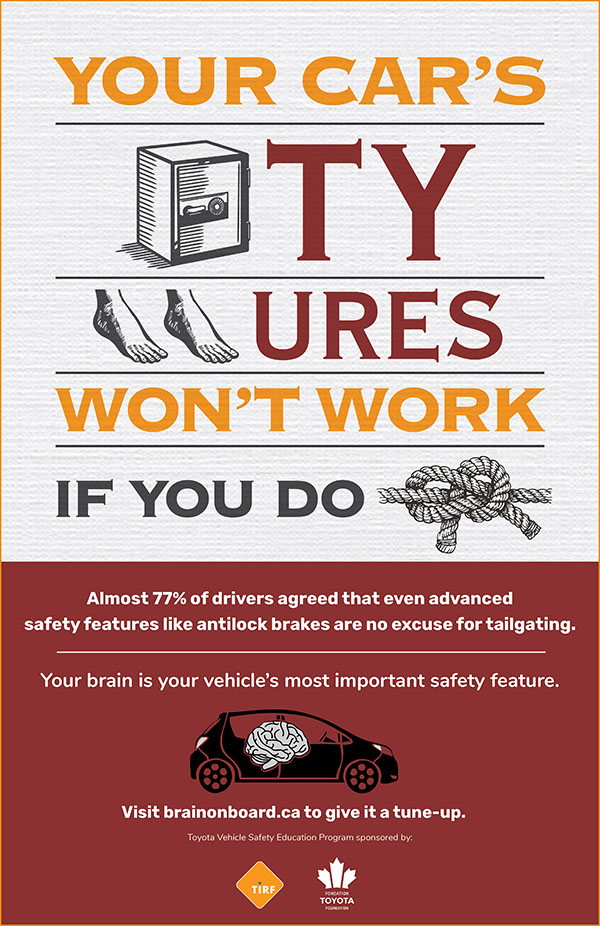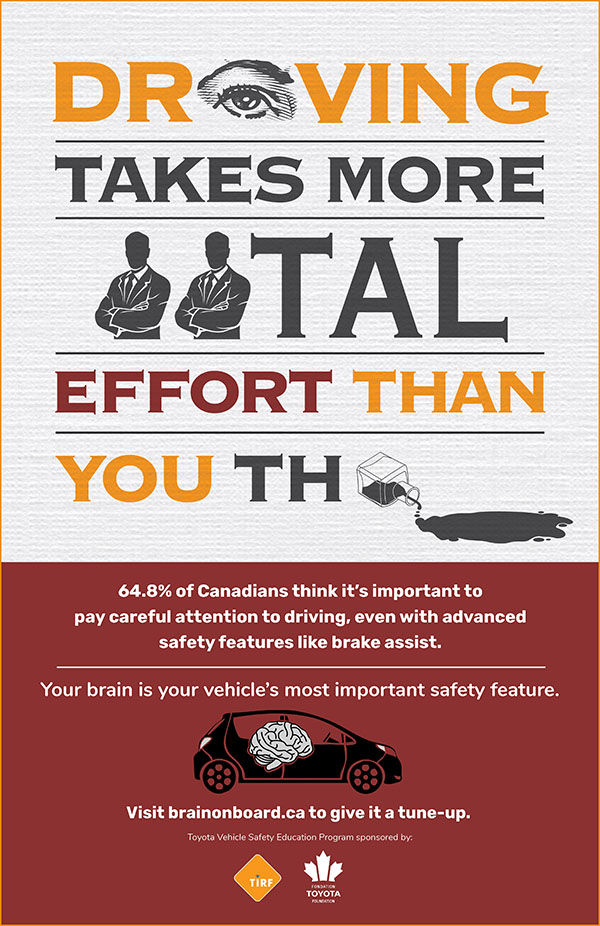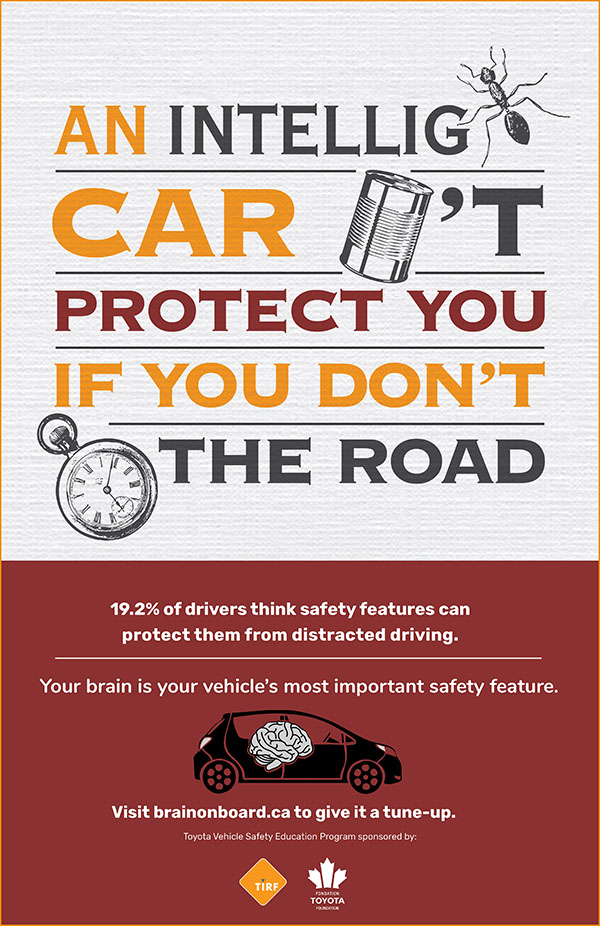Drivers must know how and when vehicle technologies work to embrace their safe use.
Have you ever wondered why ABS makes the noise that it does? Or how electronic stability control keeps your car on the road if you inadvertently take that corner a little too fast?
Studies show that vehicle safety features can prevent crashes and injuries, especially when combined with safe driving practices. However, the majority of Canadian drivers are unfamiliar with newer safety features that are available, how they work, and when they would be useful.
BrainonBoard.ca is your one-stop-shop to learn about the many vehicle safety features that are rapidly becoming standard on vehicles, and how to maximize the protection they provide by combining them with safe driving behaviours.
Safety Features
This section contains information about a wide range of vehicle safety features currently on the market, as well as safety technologies in development.
Human Factors
Human factors research, also referred to as ergonomics, examines people’s behaviour and the way they interact with various aspects of the world. The purpose of human factors research is to reduce risky behaviours and make these interactions safer, healthier, and more efficient.
Myths & Misconceptions
There are many myths and misconceptions about vehicle safety features; learn the facts about the role of drivers in the driving equation to increase safety, and implications of their behaviours on the effectiveness of technologies.
Program Resources
This section contains more detailed descriptions of vehicle safety features and human factors referenced on the website.
Myths & Misconceptions
Explore many of the common myths and misconceptions regarding vehicle safety features as well as ways driver behaviour can influence their effectiveness.



